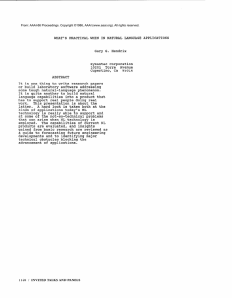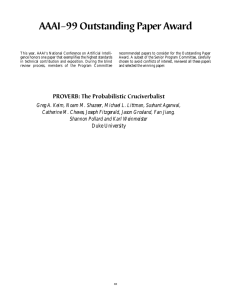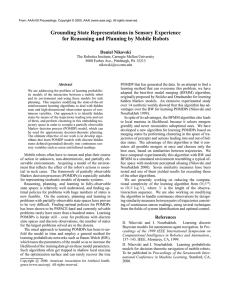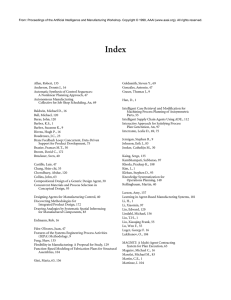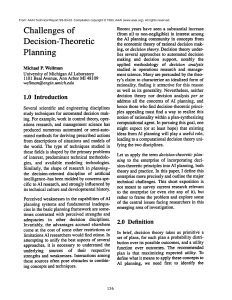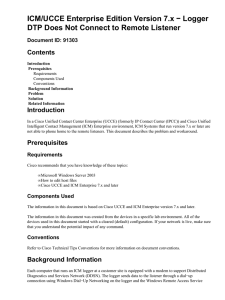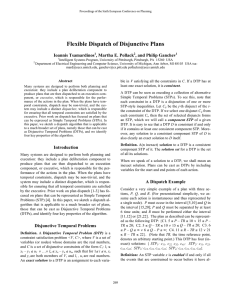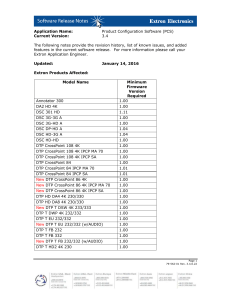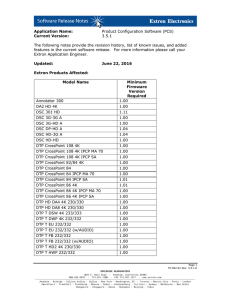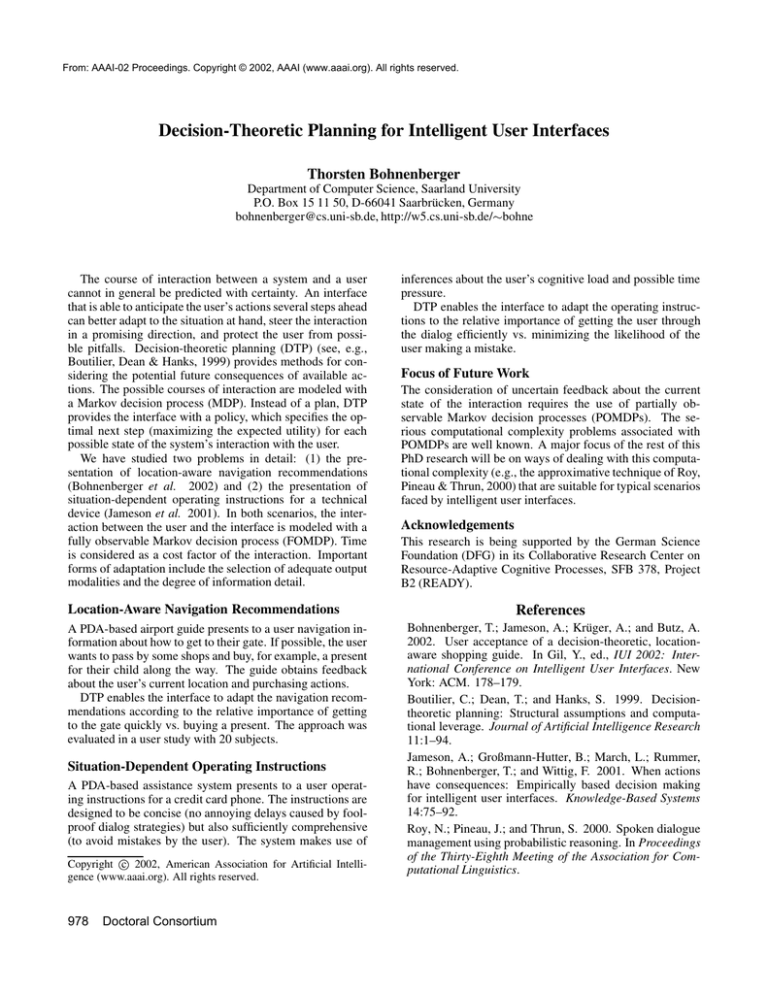
From: AAAI-02 Proceedings. Copyright © 2002, AAAI (www.aaai.org). All rights reserved.
Decision-Theoretic Planning for Intelligent User Interfaces
Thorsten Bohnenberger
Department of Computer Science, Saarland University
P.O. Box 15 11 50, D-66041 Saarbrücken, Germany
bohnenberger@cs.uni-sb.de, http://w5.cs.uni-sb.de/ bohne
The course of interaction between a system and a user
cannot in general be predicted with certainty. An interface
that is able to anticipate the user’s actions several steps ahead
can better adapt to the situation at hand, steer the interaction
in a promising direction, and protect the user from possible pitfalls. Decision-theoretic planning (DTP) (see, e.g.,
Boutilier, Dean & Hanks, 1999) provides methods for considering the potential future consequences of available actions. The possible courses of interaction are modeled with
a Markov decision process (MDP). Instead of a plan, DTP
provides the interface with a policy, which specifies the optimal next step (maximizing the expected utility) for each
possible state of the system’s interaction with the user.
We have studied two problems in detail: (1) the presentation of location-aware navigation recommendations
(Bohnenberger et al. 2002) and (2) the presentation of
situation-dependent operating instructions for a technical
device (Jameson et al. 2001). In both scenarios, the interaction between the user and the interface is modeled with a
fully observable Markov decision process (FOMDP). Time
is considered as a cost factor of the interaction. Important
forms of adaptation include the selection of adequate output
modalities and the degree of information detail.
Location-Aware Navigation Recommendations
A PDA-based airport guide presents to a user navigation information about how to get to their gate. If possible, the user
wants to pass by some shops and buy, for example, a present
for their child along the way. The guide obtains feedback
about the user’s current location and purchasing actions.
DTP enables the interface to adapt the navigation recommendations according to the relative importance of getting
to the gate quickly vs. buying a present. The approach was
evaluated in a user study with 20 subjects.
Situation-Dependent Operating Instructions
A PDA-based assistance system presents to a user operating instructions for a credit card phone. The instructions are
designed to be concise (no annoying delays caused by foolproof dialog strategies) but also sufficiently comprehensive
(to avoid mistakes by the user). The system makes use of
­
Copyright c 2002, American Association for Artificial Intelligence (www.aaai.org). All rights reserved.
978
Doctoral Consortium
inferences about the user’s cognitive load and possible time
pressure.
DTP enables the interface to adapt the operating instructions to the relative importance of getting the user through
the dialog efficiently vs. minimizing the likelihood of the
user making a mistake.
Focus of Future Work
The consideration of uncertain feedback about the current
state of the interaction requires the use of partially observable Markov decision processes (POMDPs). The serious computational complexity problems associated with
POMDPs are well known. A major focus of the rest of this
PhD research will be on ways of dealing with this computational complexity (e.g., the approximative technique of Roy,
Pineau & Thrun, 2000) that are suitable for typical scenarios
faced by intelligent user interfaces.
Acknowledgements
This research is being supported by the German Science
Foundation (DFG) in its Collaborative Research Center on
Resource-Adaptive Cognitive Processes, SFB 378, Project
B2 (READY).
References
Bohnenberger, T.; Jameson, A.; Krüger, A.; and Butz, A.
2002. User acceptance of a decision-theoretic, locationaware shopping guide. In Gil, Y., ed., IUI 2002: International Conference on Intelligent User Interfaces. New
York: ACM. 178–179.
Boutilier, C.; Dean, T.; and Hanks, S. 1999. Decisiontheoretic planning: Structural assumptions and computational leverage. Journal of Artificial Intelligence Research
11:1–94.
Jameson, A.; Großmann-Hutter, B.; March, L.; Rummer,
R.; Bohnenberger, T.; and Wittig, F. 2001. When actions
have consequences: Empirically based decision making
for intelligent user interfaces. Knowledge-Based Systems
14:75–92.
Roy, N.; Pineau, J.; and Thrun, S. 2000. Spoken dialogue
management using probabilistic reasoning. In Proceedings
of the Thirty-Eighth Meeting of the Association for Computational Linguistics.

